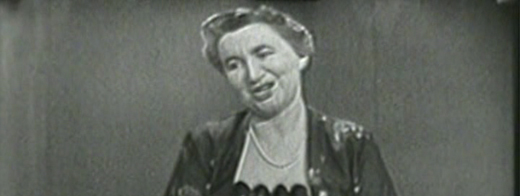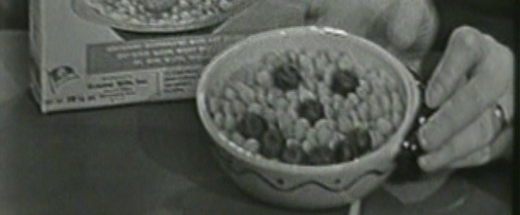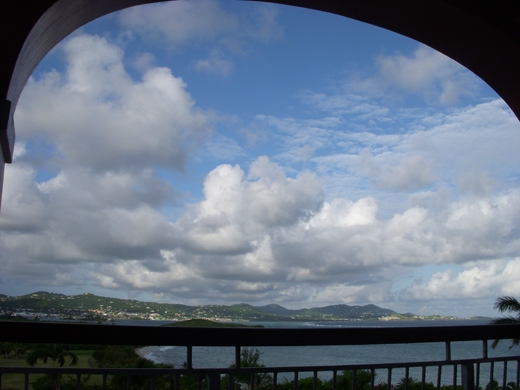Chinese Bells

“Today, I want to do it on the table!”
Miss Frances. Frances Rappaport Horwich, star — if that’s the word — of Ding Dong School. A show that I watched with recollected docility in the early Fifties. Perhaps the best way to think of Miss Frances is as Mr Rogers’s fairy godmother, by way of Joe Jervis — qua Ruth Draper’s Mrs Grimmer, of Doctors and Diets, a routine that Joe can recite by rote. (Cue it, Joe!)
A show from this popular series is included in the DVD set, Hiya, Kids!!, which takes its name from another old favorite, Andy’s Gang (“Plunk your magic twanger, Froggie.”). On the one hand, these shows are amazingly innocent of all TV allure. Production values are sub-nil. On the other hand, it is impossible to watch them without imagining their hosts being led away in chains, by federal marshals.
You think I’m joking? Consider this wholesome activity.
The ew factor of this image sent Kathleen into paroxyms of revulsion. I knew that she’d react unfavorably to Ding Dong School, but the extent to which she did so surprised even me.
The commercialization can only be called Nudist. It is that frank. There are two ads for Kix. Both of them feature serving suggestions of which this is the most naive:
There is, strangely, no mention whatsoever of milk, or cream, or water, or any liquid. I suppose that liquid would dampen the crunchiness, which is billed as lasting until “the last spoonful.” The last spoonful in the box, that is. (In those days, nobody worried about how that was managed.) Every time Miss Frances mentions the “crunchy corn” deliciousness of “Kix,” all I can think of is Mrs Grimmer’s trying to squeeze out “the juice of eleven lemons.”
In addition to blowing bubbles, Miss Frances recites poems (by Vachel Lindsay and Robert Louis Stevenson), folds handkerchiefs, and bounces a ball.
I didn’t know that there was such a thing as a child requiring instruction in bouncing a ball.
After all of this edification, Miss Frances summons the parents and/or guardians, bustles the kids out of the room, talks up the handkerchief trick, plugs Kix all over again, and then — this is why you have to buy the DVD — urges her listeners to teach their little ones to “evaluate plans.” Stalinist or anti-Communist? It’s hard to tell.
The good news is that Kathleen has all sorts of new nightmare material, what with Miss Frances and watching Toy Story right afterward.
As for the title of this entry: it refers to a prepubescent joke that I was telling within five or six years of watching Ding Dong School. In those days, five or six years made a completely different man of me; now it only means that I have lived to benefit from more effective medication. Sadly, I still think that this is one of the funniest jokes that I have ever heard. The fun is in the setup, not the punchline. (Actually, the fun is in the souvenir of boyishly imagining that a grown man might conceivably mistake X (Chinese bells) for Y (read on.) That darn keyhole: curse or blessing? If you’re up for some childishness, click on through.





















